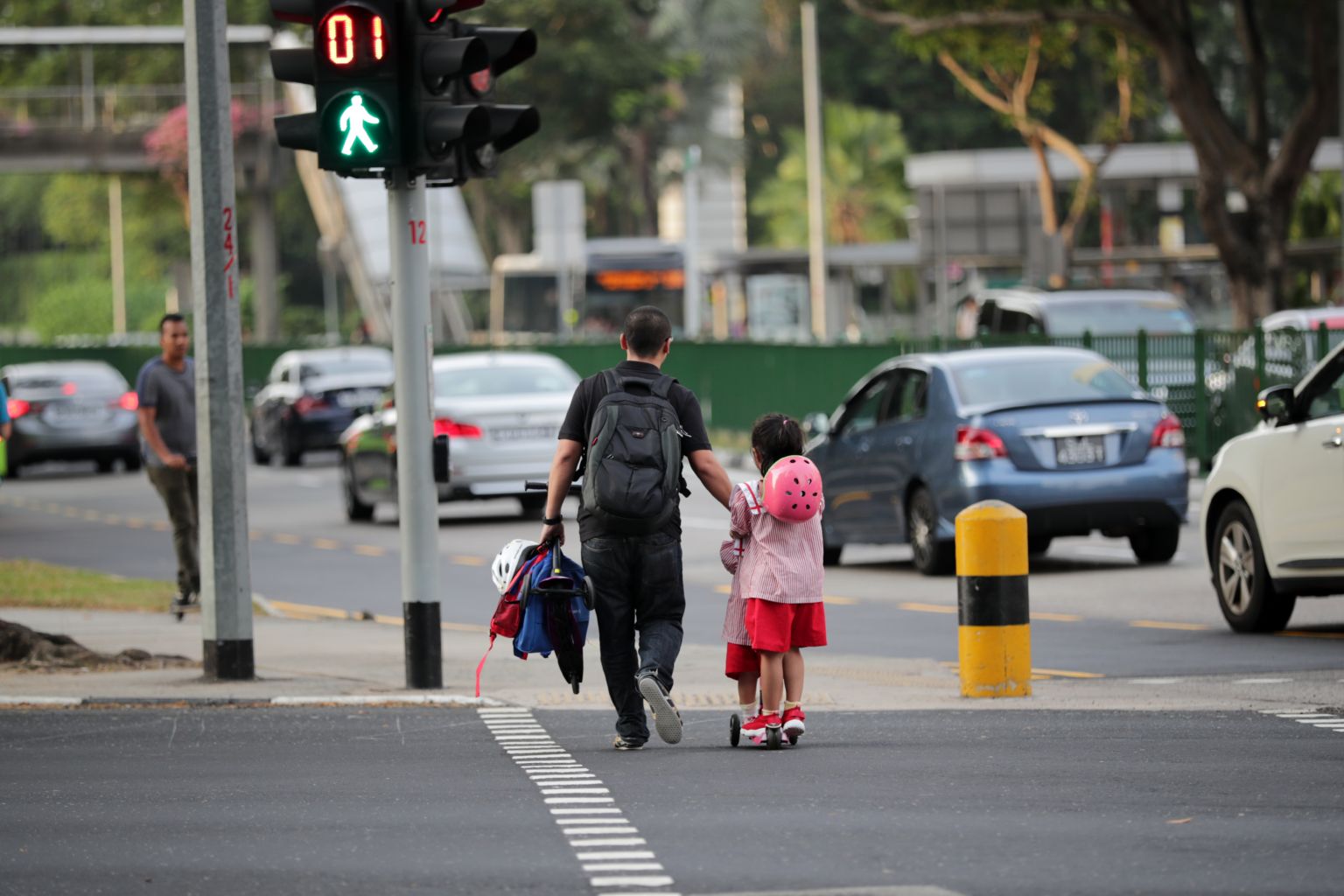More paternity leave, less stigma could help fathers be more active parents: IPS study
Sign up now: Get ST's newsletters delivered to your inbox

Many of the fathers interviewed had assumed the role due to difficulty in finding employment, or had a spouse with a higher and more stable income.
PHOTO: ST FILE
SINGAPORE - More paternity leave and measures to reduce the stigma of stay-at-home fathering are among a new set of policy recommendations to support fathers in active parenting.
Twenty-one stay-at-home fathers and nine of their spouses were interviewed to better understand how they perform their roles and draw insights on fatherhood, parenting and household work.
The study was conducted by the Institute of Policy Studies (IPS) and released on Thursday (Jan 30).
"Economic reasons as well as preference to raise their children on their own without external support were the two main reasons why the dads became stay-at-home dads," said the study's author, Ms Yvonne Arivalagan, a research associate with IPS.
Traditional gender norms were less important in deliberating the decision, she added.
These fathers, interviewed in 2018, were mostly from the middle- to upper-middle classes, and were mainly Chinese and Caucasians, aged between 29 and 67. They had spent an average of six years as a stay-at-home father.
The study was funded by the Ministry of Social and Family Development under the Social and Family Research Fund.
Many of the fathers interviewed had assumed the role due to difficulty in finding employment, or had a spouse with a higher and more stable income.
They also believed that a parent should be the child's main caregiver, as opposed to asking grandparents for help, hiring a foreign domestic worker or sending the child to childcare centres.
The interviewees also saw parenting as a gender-neutral activity.
One father, 31, said: "We have our own style of teaching, we have our own philosophy. Which is also why we can't agree with a mass care setting for young children."
Time spent as a stay-at-home father had also allowed the men to develop skills and adaptive strategies, such as learning the cues, needs and patterns of children's behaviour, to successfully perform the role that they had not been familiar with before.
"This challenges the assumption that mothers have an advantage when it comes to parenting," said Ms Arivalagan.
The fathers also emphasised the "useful" and conventionally masculine aspects of fatherhood, using words like "protector" and "leader" when describing their roles, which they also said was different from mothers'.
This was likely a coping mechanism or response to the stigma faced by the fathers for choosing to stay at home, said Ms Arivalagan.
Instances of stigma faced included derisive comments and indirect and implied criticism of the fathers' roles as stay-at-home fathers, often from in-laws.
Family members would comment on them "wasting" their potential or "mooching" off their wives.
The study also found that strong cultural scripts prevented stay-at-home fathers and breadwinner mothers from fully embracing their roles, which are traditionally reversed.
One father, 44, said: "No matter how much a father has done, a child will always need (his) mother, because we have different modes of care and love."
A mother, 34, said: "I have to be very mindful and careful about the decisions that I make and how I can actually progress in my career… while being mindful that I also have a role to play as a mum."
The study presented several policy recommendations, gathered from interviewees as well as expanded upon from the findings.
It suggested that policies here could more closely reflect that economic factors play a large factor over gender norms in dads' decisions to stay home.
For example, changes could be made to the Grandparent Caregiver Relief, given to working mothers who engage the help of their parents, grandparents, parents-in-law or grandparents-in-law to take care of their children. Working fathers are not eligible for this relief.
Given the importance of time in developing fathers' skills and confidence, the study also called for more paternity leave.
Two weeks of paternity leave is not enough time to contribute significantly to childcare, with one father noting that "it's just a vacation".
Paternity leave should hence be extended, and be exclusive and non-transferable for fathers, rather than have increased shared parenting leave, said the study.
Research in other countries found that mothers were seen as the "owners" of such leave.
Workplaces could also introduce a paternity cover policy, where a temporary employee is hired for a six-month period while a staff member is on extended paternity leave, similar to the maternity cover practised by some companies here, said Ms Arivalagan.
Government policy support and communications could also highlight that being a father and caregiver is not emasculating, and frame parenting as involving a spectrum of roles that both parents can fulfil equally well.
Should the policy recommendations be implemented, it could reduce the stress many mothers face in taking on the lion's share of household work, said Ms Arivalagan.
"It could also bring fathers closer to their children," she added. "A lot of parents naturally would want to spend time with their children, fathers and mothers alike."


